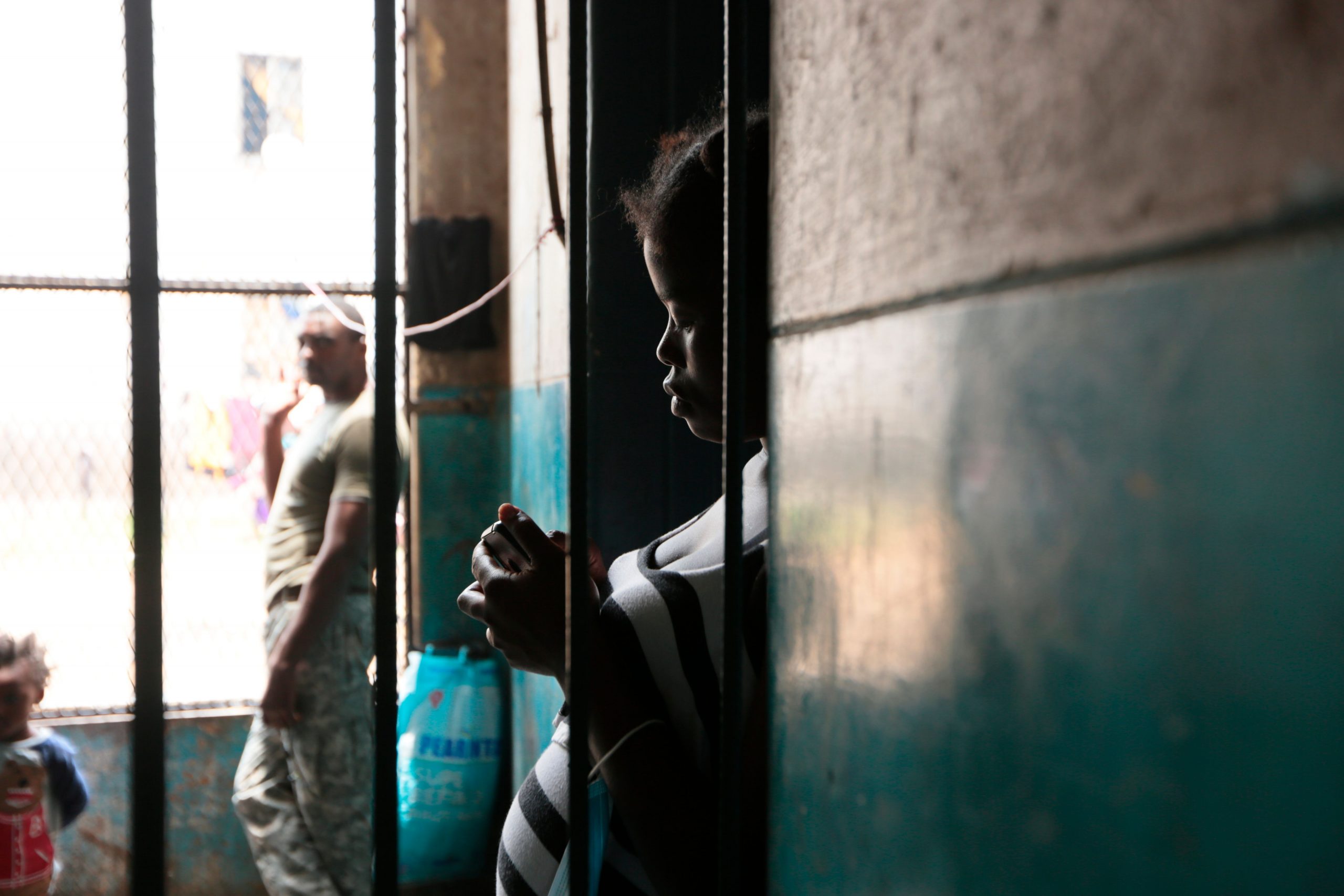Inside a sparsely furnished two-room home in rural Zimbabwe, a 3-month-old baby cries. His mother, Virginia Mavhunga, spends her days making trips to the well with a bucket on her head, selling fruits and vegetables at the roadside, cooking, cleaning, washing clothes — she has too much on her hands to offer her child, Tawananyasha, much comfort.
“That’s my life now, every day,” the new mother said.
Also read: Eric Garcetti and India: What to expect from the ambassadorship
Between the chores of her strict routine, Virginia prepares her four younger siblings for school and helps them with homework when they return. It’s these tasks that hit Virginia the hardest — because, at age 13, she, too, would rather be in school.
Virginia is part of a steep increase in pregnancies among girls and teenagers reported in Zimbabwe and other southern African countries during the pandemic. Zimbabwe has long struggled with such pregnancies and child marriages. Before COVID-19 hit, one of every three girls in the country was wed before age 18, many with unplanned pregnancies, because of lax enforcement of laws, widespread poverty, and cultural and religious practices.
Also read: Novak Djokovic clarifies movements as Australian visa saga continues
This story is part of a yearlong series on how the pandemic is impacting women in Africa, most acutely in the least developed countries. The Associated Press series is funded by the European Journalism Centre’s European Development Journalism Grants program, which is supported by the Bill & Melinda Gates Foundation. The AP is responsible for all content.
The spread of coronavirus intensified the situation. The country of 15 million people imposed a strict lockdown in March 2020, closing schools for six months and reopening them only intermittently. Girls in particular were left idle and shut out from access to contraceptives and clinics; the troubles of impoverished families worsened.
Also read: Why are athletes like Novak Djokovic reluctant about COVID19 vaccine?
Many girls became victims of sexual abuse or looked to marriage and pregnancy as a way out of poverty, advocates and officials said. Before the pandemic, many such girls were “relegated as a lost cause,” said Taungana Ndoro, an education official in Zimbabwe.
But faced with the rising numbers, the government in August 2020 changed a law that had long banned pregnant students from schools. Activists and authorities hailed the move as a significant step in the developing nation, but so far the new policy has largely failed. Most girls haven’t returned to school, with authorities and families citing economic hardship, deep-seated cultural norms, and stigma and bullying in class.
The AP generally doesn’t name victims of sexual abuse without consent. For this story, the girls and their families have agreed to be identified and have their names published, in keeping with their wishes to have their stories told.
Also read: Amid global COVID surge, WHO warns against treating omicron like the flu
Virginia tried to return to school while pregnant under the policy change. Officials encouraged her and her parents. But she was the butt of jokes and the subject of gossip in a community not accustomed to seeing a pregnant girl in a school uniform.
“People would laugh at me. Some would point and ask in ridicule; ‘What’s up with that belly?’” she said, looking at a photo of herself in the purple uniform. She has since sold it for $2 to pay for the baby’s clothing and other needs.
Also read: North Korea set to double down on ‘military muscle’ after missile test
Virginia said she had hoped the older man who impregnated her would marry her. Despite initial promises, he ultimately denied paternity, she said. She and her family didn’t follow through on a statutory rape case with police, despite Zimbabwean law putting the age of consent at 16.
Under the law, people convicted of sexual intercourse or “an indecent act” with anyone younger than 16 can get a fine or up to 10 years in jail. But most incidents never get that far. Families and officials have long tried “to sweep the cases under the carpet or … force marriages on the minor,” police spokesman Paul Nyathi said.
Families often try to negotiate with the offender, pressuring him to marry the girl and give her family cattle or money, Nyathi said. Then they agree to not report the case to police — ultimately “assisting in the abuse of the girl,” he said.
Also read: US CDC may update mask guidance, suggest usage of N95s: Report
Police said they couldn’t provide data related to prosecuted or reported cases. Nyathi said a tally would be ready by the end of January — but any figures are likely an undercount.
Zimbabwe does have figures on pregnancies in girls who drop out of school — and while they show an alarming increase, officials say they, too, likely reflect an undercount, as many girls simply leave without giving a reason.
Also read: North Korea claims successful test of hypersonic missile
In 2018, about 3,000 girls dropped out of school nationwide because of pregnancies. In 2019, that number remained relatively steady. In 2020, the number rose: 4,770 pregnant students left school.
And in 2021, it skyrocketed: About 5,000 students got pregnant in just the first two months of the year, according to women’s affairs minister Sithembiso Nyoni.
Also read: Royal Mail honours The Rolling Stones with special stamps on the band’s 60th anniversary
Across Africa, Zimbabwe isn’t alone: During the pandemic, Botswana, Namibia, Lesotho, Malawi, Madagascar, South Africa and Zambia “all recorded a steep rise in cases of sexual and gender-based violence, which has contributed to a reported increase in pregnancies among young and adolescent girls,” according to an Amnesty International report. The continent has one of the highest pregnancy rates among adolescents in the world, according to the United Nations, and Zimbabwe and a handful of other nations now have laws or policies to protect girls’ education while pregnant.







